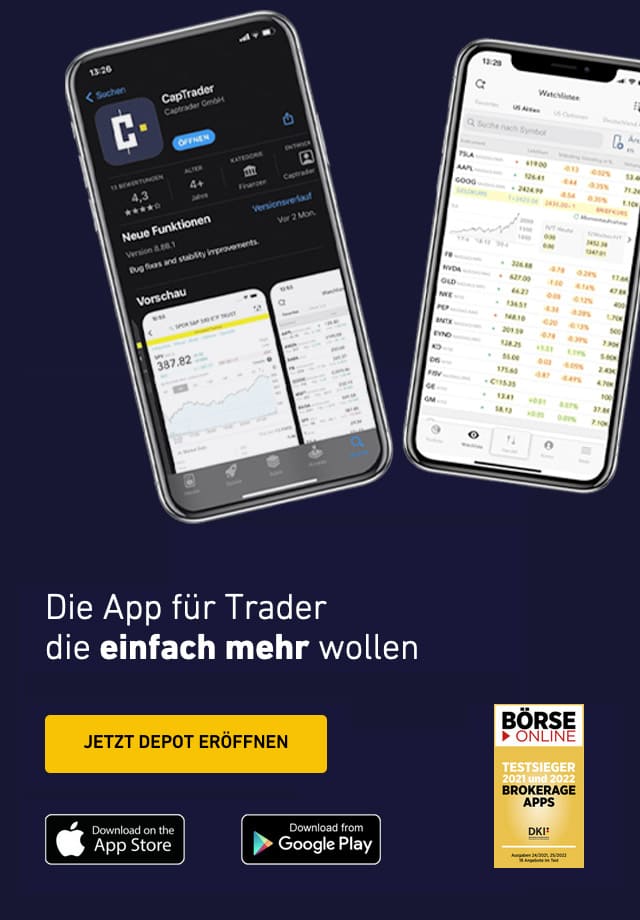The regular distribution of a Dividend is sometimes a reason for many shareholders and investors to invest in Shares to invest. Particularly in an environment of low interest rates, as has been the case for several years, dividends are sometimes referred to as the "new interest".
What is a dividend?
The dividend is the portion of the profit of a stock corporation that is distributed to the shareholders. The amount of the dividend is decided by the shareholders with voting rights on the basis of a proposal by the Board of Management at the Annual General Meeting by a simple majority.
Which companies pay dividends?
In principle, each stock corporation and its shareholders can determine whether or not a dividend is paid. A company can also decide individually on the amount of the dividend and whether to increase it.
Young companies with a strong focus on growth, especially in the technology sector, often do not pay dividends in the first few years. (These are also referred to as growth stocks or growth companies.) Steve Jobs, for example, was considered to be against dividends, which is why Apple did not pay out any dividends for many years. Only since 2012 have profits been distributed continuously. (The dividend has been increased year after year since then).
In contrast, regular profit distributions can be expected more frequently from companies that have been profitable and established for many years.
The amount of the dividend and dividend growth also depend on the economy and a company's profit development or growth. Nevertheless, some companies increase their dividend payout year after year; even in crisis years. A prominent example of such a "dividend aristocrat" is Coca-Cola. The company increased its dividend in 2019 for the 57th year in a row.

When will the dividend be paid?
In Germany the dividend is generally distributed once a year. For a long time, it was customary for the dividend to be paid on the day after the Annual General Meeting. Since a change in the German Stock Corporation Act in 2017, however, this can also be done a few days later, no later than the third business day after the resolution of the Annual General Meeting.
In other countries, dividends are also paid out more frequently. In the USA for example, a quarterly distribution is common, with some American companies even paying monthly dividends.
The dividend discount
If a company pays a dividend, the so-called "dividend discount" occurs on the day after the Annual General Meeting (in Germany) (even if the distribution is not made until one or two days later). This day is also called the "ex-dividend day" or "ex-day." On this day, the share is traded with the addition of "ex-dividend" or "xD" or "exDiv." which means "without dividend". This means that the share price is reduced by the amount of the gross dividend.
The dividend yield
If you put the amount of the dividend paid in relation to the current share price, you get the dividend yield.
Dividend yield in percent = dividend/share price * 100
Example: A share is quoted at EUR 100 and pays a dividend of EUR 5. The dividend yield (in percent) is:
5 EUR / 100 EUR * 100 = 0.05 * 100 = 5%
The taxation of dividends
Whether and how you as a shareholder have to pay tax on your dividends varies from country to country. In Germany, private investors are required to declare dividends as a Income from capital assets taxed at the final withholding tax rate. (Different rules apply to sole proprietorships, partnerships and corporations).
Should the dividend income exceed the Savers' lump sum of EUR 801 per year and person, dividend income is tax-free for private investors.
Different types of dividends
In addition to the "normal" dividend, which is usually distributed once a year in Germany, there are several other types of dividend:
Cash dividend
The cash dividend is the dividend that a shareholder actually receives as a distribution, i.e. after deduction of corporation tax.
Excess dividend
The superdividend is a supplement to the normal dividend that is paid on preference shares.
Preference dividend
Holders of preference shares receive a preference dividend. This often includes a dividend guarantee and a higher dividend compared to ordinary shares
Stock dividend (share dividend)
In the case of a stock dividend (stock = share) - also known as a scrip dividend - the shareholder receives additional shares instead of the cash dividend. For tax purposes, the stock dividend is treated in the same way as a cash dividend.
Dividend on account
An interim dividend is an advance payment of part of the dividend. In Germany, interim dividends are rather uncommon.
